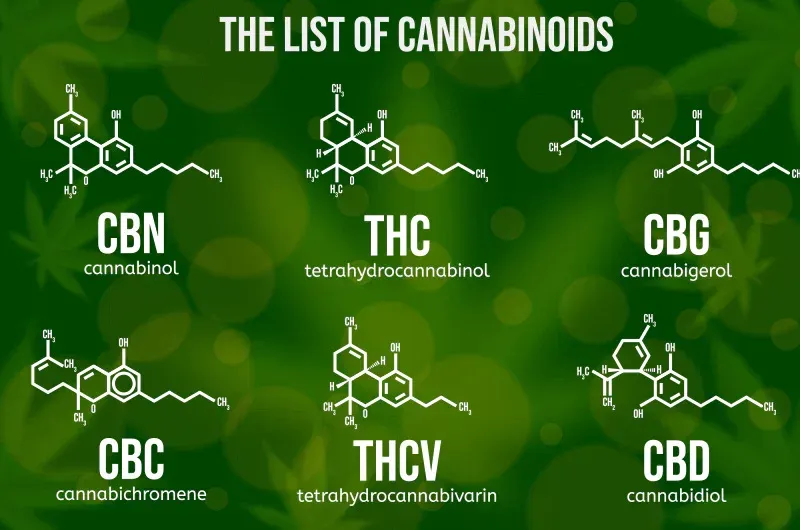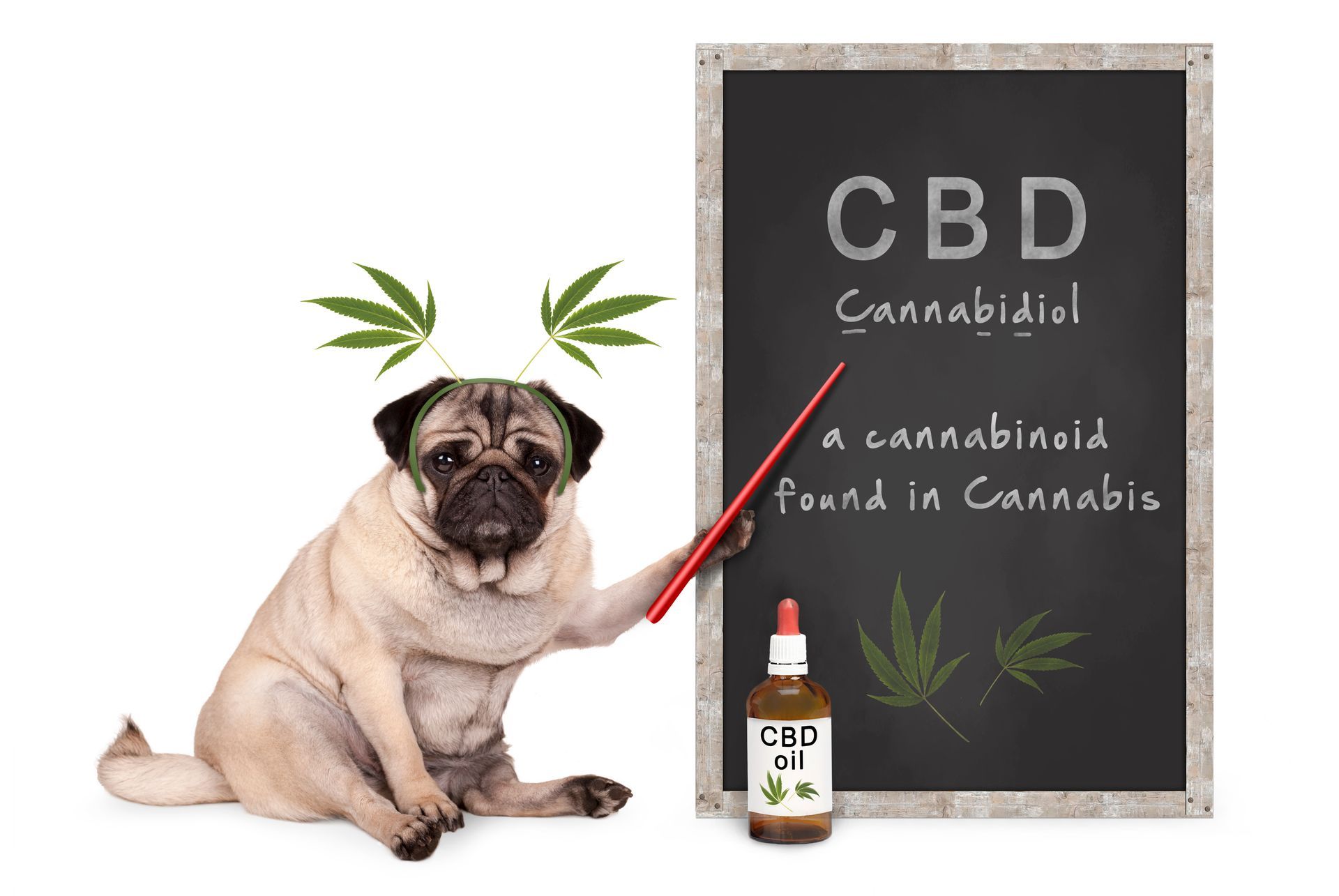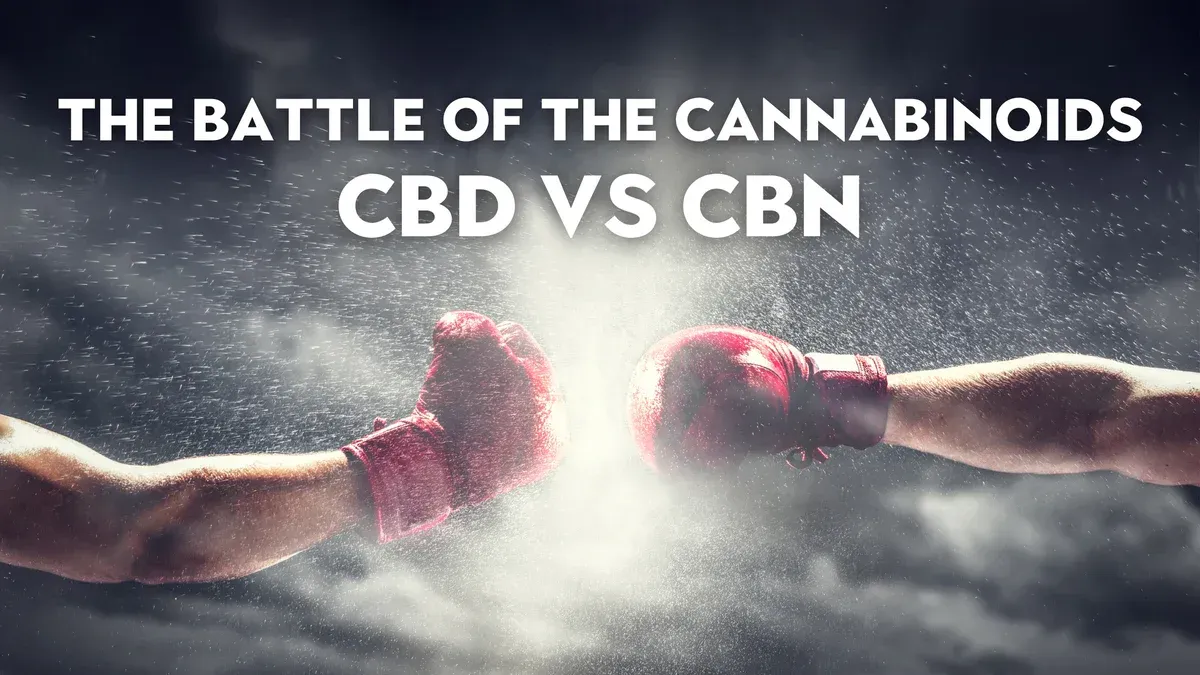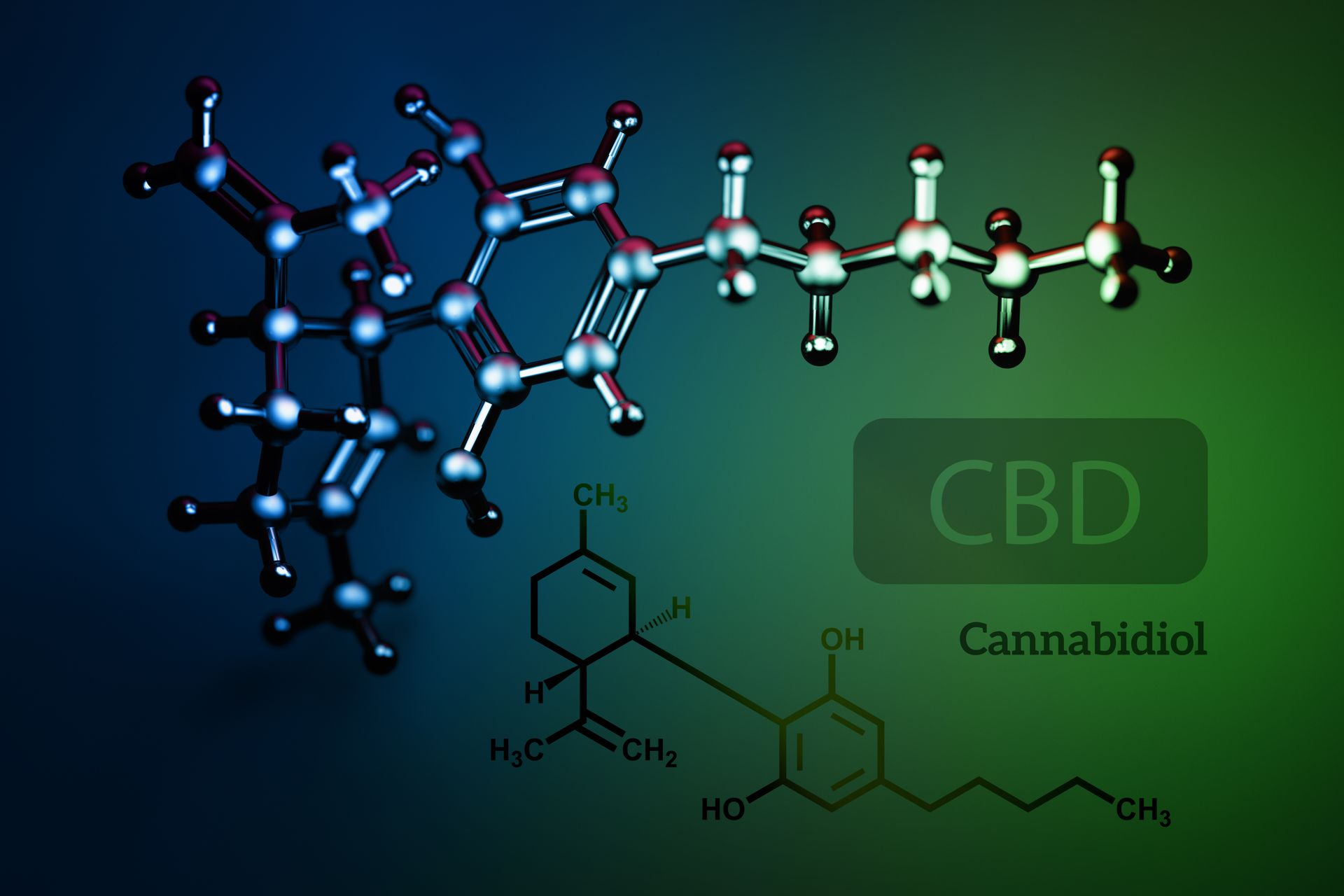Traversing the Intricacies of Cannabinoids: A Comprehensive Expedition
The Captivating World of More than 100 Cannabinoids

Traversing the Intricacies of Cannabinoids: A Comprehensive Expedition
In the vast expanse of cannabinoid science, a myriad of chemical compounds derived from the cannabis plant await exploration. From the renowned THC and CBD to the lesser-known CBG, CBN, and CBC, each cannabinoid contributes to the complex interplay of effects and applications associated with cannabis. Join us as we embark on a comprehensive journey through the labyrinthine landscape of cannabinoids, uncovering their roles, forms, and safety considerations while delving into the extensive lexicon of cannabis-related keywords.
Unveiling the Multifaceted World of Cannabinoids
Cannabinoids, the diverse molecules found within the cannabis plant, interact with the body's endocannabinoid system, influencing an array of physiological processes. While THC and CBD often command attention, a plethora of other cannabinoids contribute to the pharmacological effects and potential benefits of cannabis.
Major Cannabinoids:
- Delta-9-Tetrahydrocannabinol (THC): Renowned for its psychoactive effects, THC interacts with cannabinoid receptors in the brain, leading to altered perception and cognition.
- Cannabidiol (CBD): Non-intoxicating and celebrated for its potential therapeutic benefits, CBD exhibits anti-inflammatory and analgesic properties, making it a promising candidate for pain relief and neuropathic pain management.
Minor Cannabinoids:
- Cannabigerol (CBG): Often present in low concentrations, CBG serves as a precursor to THC and CBD, potentially offering neuroprotective effects and contributing to pain relief.
- Cannabinol (CBN): Formed through THC degradation, CBN is associated with sedative effects and may play a role in sleep regulation and chronic pain management.
- Cannabichromene (CBC): Non-intoxicating and underexplored, CBC exhibits anti-inflammatory and analgesic properties, suggesting therapeutic benefits for pain relief and neuropathic pain.
Natural vs. Synthetic Cannabinoids:
While natural cannabinoids are derived from the cannabis plant, synthetic cannabinoids are laboratory-created compounds designed to mimic their effects. Synthetic cannabinoids, such as HU-210 and JWH series, may exhibit enhanced potency but also pose a higher risk of adverse effects due to variations in chemical structure and pharmacological activity.
Forms and Consumption Methods
Cannabinoids are available in various forms, catering to diverse preferences and consumption habits. Whether seeking immediate relief or sustained effects, individuals can choose from a multitude of options tailored to their needs and circumstances.
Traditional Consumption Methods:
- Smoking and Vaporization: Inhaling cannabis flower or concentrates for rapid onset of effects and customizable dosing.
- Edibles and Beverages: Consuming cannabinoid-infused food products or beverages for prolonged and discreet effects.
Alternative Delivery Mechanisms:
- Topicals: Applying cannabinoid-infused creams, balms, or patches directly to the skin for targeted relief from pain and inflammation.
- Sublingual Tinctures: Administering concentrated cannabinoid extracts under the tongue for rapid absorption into the bloodstream.
Novel Delivery Systems:
- Transdermal Patches: Delivering cannabinoids through the skin for controlled and sustained release over time.
- Suppositories: Rectal or vaginal administration for rapid absorption and bypassing of the digestive system.
Effects and Safety Considerations
Understanding the effects and potential risks associated with cannabinoid use is essential for promoting responsible consumption and minimizing adverse outcomes. While cannabinoids offer a range of therapeutic and recreational benefits, they also pose certain safety considerations that warrant attention and awareness.
Pharmacological Effects:
- Psychoactivity: THC-induced euphoria and altered perception contribute to its recreational appeal but may also lead to adverse psychological effects.
- Anti-inflammatory and Analgesic Effects: CBD and other cannabinoids exhibit anti-inflammatory and analgesic properties, offering potential benefits for pain relief and neuropathic pain management.
Safety Precautions:
- Adverse Effects: Synthetic cannabinoids and high doses of THC may lead to adverse effects, including anxiety, paranoia, and cognitive impairment.
- Individual Sensitivities: Variations in cannabinoid sensitivity and metabolism may influence individual responses, highlighting the importance of personalized dosing and monitoring.
- Dependence and Tolerance: Prolonged use of cannabinoids, particularly THC, may lead to dependence and tolerance, necessitating caution and moderation.
Seeking Support and Assistance
For those grappling with cannabinoid misuse or seeking guidance on responsible consumption, various resources and support networks are available. Whether seeking confidential counseling or educational materials, individuals can access assistance tailored to their needs and circumstances.
Clinical Trials and Systematic Reviews:
- Medical Cannabis Research: Ongoing clinical trials and systematic reviews evaluate the efficacy and safety of cannabinoids for various medical conditions, including chronic pain, forms of epilepsy, and neuropathic pain.
National Helplines:
- National Alcohol and Other Drug Hotline: Providing free and confidential advice, information, and counseling for individuals experiencing substance-related concerns.
Conclusion: Navigating the Cannabinoid Odyssey
As our understanding of cannabinoids continues to evolve, so too does our appreciation for the complex interplay of chemical compounds and biological systems. From the psychoactive effects of THC to the therapeutic potential of CBD and beyond, cannabinoids offer a diverse array of effects and applications. By exploring the roles of cannabinoids in health and wellness, we gain insight into their multifaceted nature and potential therapeutic benefits. Through responsible consumption practices and informed decision-making, individuals can harness the benefits of cannabinoids while minimizing potential risks. Together, let us embark on a journey of exploration and discovery, navigating the intricate landscape of cannabinoids with curiosity, caution, and compassion.
Servant's Heart Natural Well-Being Products
Please visit Servant's Heart Products servantsheartglobal.com for THC-free, all-natural, affordable, high quality, and potent CBD products, including gummies and topical.
Additional Resources About Cannabinoids:
https://archive.org/details/cannabinoidshand00pert
https://nida.nih.gov/publications/research-reports/marijuana/how-does-marijuana-produce-its-effects
https://nida.nih.gov/publications/research-reports/marijuana/what-marijuana
http://www.unodc.org/unodc/en/data-and-analysis/bulletin/bulletin_1962-01-01_3_page005.html
https://www.unodc.org/LSS/SubstanceGroup/Details/ae45ce06-6d33-4f5f-916a-e873f07bde02
https://unodc.org/LSS/SubstanceGroup/Details/ae45ce06-6d33-4f5f-916a-e873f07bde02
https://www.worldcat.org/issn/1520-6025
https://www.worldcat.org/issn/2578-5125
https://www.worldcat.org/issn/0362-4331
https://www.worldcat.org/issn/2050-3245
https://pubmed.ncbi.nlm.nih.gov/21305906
https://pubmed.ncbi.nlm.nih.gov/22325079
https://pubmed.ncbi.nlm.nih.gov/12446537
https://pubmed.ncbi.nlm.nih.gov/17931597
https://pubmed.ncbi.nlm.nih.gov/16636640
https://pubmed.ncbi.nlm.nih.gov/15451779
https://pubmed.ncbi.nlm.nih.gov/6271827
https://pubmed.ncbi.nlm.nih.gov/22290123
https://pubmed.ncbi.nlm.nih.gov/19689331
https://pubmed.ncbi.nlm.nih.gov/19349314
https://pubmed.ncbi.nlm.nih.gov/19924114
https://pubmed.ncbi.nlm.nih.gov/18589404
https://pubmed.ncbi.nlm.nih.gov/22532560
https://pubmed.ncbi.nlm.nih.gov/4609532
https://pubmed.ncbi.nlm.nih.gov/22150622
https://pubmed.ncbi.nlm.nih.gov/15866551
https://pubmed.ncbi.nlm.nih.gov/17157290
https://pubmed.ncbi.nlm.nih.gov/20829306
https://pubmed.ncbi.nlm.nih.gov/19693792
https://pubmed.ncbi.nlm.nih.gov/12373420
https://pubmed.ncbi.nlm.nih.gov/21838843
https://pubmed.ncbi.nlm.nih.gov/20357305
https://pubmed.ncbi.nlm.nih.gov/12586720
https://pubmed.ncbi.nlm.nih.gov/2848184
https://pubmed.ncbi.nlm.nih.gov/1470919
https://pubmed.ncbi.nlm.nih.gov/1470919
https://pubmed.ncbi.nlm.nih.gov/3529128
https://pubmed.ncbi.nlm.nih.gov/19949195
https://pubmed.ncbi.nlm.nih.gov/21481098
https://pubmed.ncbi.nlm.nih.gov/21484568
https://pubmed.ncbi.nlm.nih.gov/15173844
https://pubmed.ncbi.nlm.nih.gov/19609589
https://pubmed.ncbi.nlm.nih.gov/22310034
https://pubmed.ncbi.nlm.nih.gov/18691604
https://pubmed.ncbi.nlm.nih.gov/19124693
https://pubmed.ncbi.nlm.nih.gov/16506412
https://pubmed.ncbi.nlm.nih.gov/14660135
https://pubmed.ncbi.nlm.nih.gov/9823341
https://pubmed.ncbi.nlm.nih.gov/17551355
https://pubmed.ncbi.nlm.nih.gov/17551355
https://pubmed.ncbi.nlm.nih.gov/18021759
https://pubmed.ncbi.nlm.nih.gov/15574485
https://pubmed.ncbi.nlm.nih.gov/12037135
https://pubmed.ncbi.nlm.nih.gov/11160626
https://pubmed.ncbi.nlm.nih.gov/15277313
https://pubmed.ncbi.nlm.nih.gov/22178458
https://pubmed.ncbi.nlm.nih.gov/4713005
https://pubmed.ncbi.nlm.nih.gov/4609777
https://pubmed.ncbi.nlm.nih.gov/10454705
https://pubmed.ncbi.nlm.nih.gov/19961570
https://pubmed.ncbi.nlm.nih.gov/16796380
https://pubmed.ncbi.nlm.nih.gov/18262573
https://pubmed.ncbi.nlm.nih.gov/2165569
https://pubmed.ncbi.nlm.nih.gov/7632625
https://pubmed.ncbi.nlm.nih.gov/7605349
https://pubmed.ncbi.nlm.nih.gov/11106779
https://pubmed.ncbi.nlm.nih.gov/5879214
https://pubmed.ncbi.nlm.nih.gov/12427829
https://pubmed.ncbi.nlm.nih.gov/17662880
https://pubmed.ncbi.nlm.nih.gov/15840405
https://pubmed.ncbi.nlm.nih.gov/24934539/
https://pubmed.ncbi.nlm.nih.gov/16078824
https://pubmed.ncbi.nlm.nih.gov/26836472
https://pubmed.ncbi.nlm.nih.gov/32646718
https://pubmed.ncbi.nlm.nih.gov/29449262
https://pubmed.ncbi.nlm.nih.gov/16968947
https://pubmed.ncbi.nlm.nih.gov/15866316
https://pubmed.ncbi.nlm.nih.gov/10476817
https://pubmed.ncbi.nlm.nih.gov/10082303
https://pubmed.ncbi.nlm.nih.gov/7556170
https://pubmed.ncbi.nlm.nih.gov/21295074
https://pubmed.ncbi.nlm.nih.gov/32259074
https://pubmed.ncbi.nlm.nih.gov/15266552
https://pubmed.ncbi.nlm.nih.gov/11248677
https://pubmed.ncbi.nlm.nih.gov/25667194
https://pubmed.ncbi.nlm.nih.gov/17712814
https://pubmed.ncbi.nlm.nih.gov/17876302
https://pubmed.ncbi.nlm.nih.gov/16258853
https://pubmed.ncbi.nlm.nih.gov/23108553
https://pubmed.ncbi.nlm.nih.gov/26852073
https://pubmed.ncbi.nlm.nih.gov/9379442
https://pubmed.ncbi.nlm.nih.gov/33356248
https://pubmed.ncbi.nlm.nih.gov/16402100
https://pubmed.ncbi.nlm.nih.gov/34468204
https://pubmed.ncbi.nlm.nih.gov/18289087
https://pubmed.ncbi.nlm.nih.gov/17262436
https://pubmed.ncbi.nlm.nih.gov/17252329
https://pubmed.ncbi.nlm.nih.gov/17252329
https://pubmed.ncbi.nlm.nih.gov/22525682
https://pubmed.ncbi.nlm.nih.gov/19897346
https://pubmed.ncbi.nlm.nih.gov/18574142
https://pubmed.ncbi.nlm.nih.gov/25433633
https://pubmed.ncbi.nlm.nih.gov/30397641
https://pubmed.ncbi.nlm.nih.gov/24160757
https://pubmed.ncbi.nlm.nih.gov/27341312
https://pubmed.ncbi.nlm.nih.gov/11157422
https://pubmed.ncbi.nlm.nih.gov/21749363
https://pubmed.ncbi.nlm.nih.gov/36516885
https://pubmed.ncbi.nlm.nih.gov/28293911
https://pubmed.ncbi.nlm.nih.gov/18728714
https://pubmed.ncbi.nlm.nih.gov/36971760
https://pubmed.ncbi.nlm.nih.gov/22524785
https://pubmed.ncbi.nlm.nih.gov/16266285
https://pubmed.ncbi.nlm.nih.gov/10462059
https://pubmed.ncbi.nlm.nih.gov/8751435
https://pubmed.ncbi.nlm.nih.gov/10444099
https://pubmed.ncbi.nlm.nih.gov/9285589
https://pubmed.ncbi.nlm.nih.gov/11588122
https://pubmed.ncbi.nlm.nih.gov/11259648
https://pubmed.ncbi.nlm.nih.gov/12787057
https://pubmed.ncbi.nlm.nih.gov/11042139
https://doi.org/10.3390%2Fbiom11101411
https://doi.org/10.1021%2Fjm058183t
https://doi.org/10.1021%2Facs.jnatprod.5b00949
https://doi.org/10.1016%2Fj.tplants.2020.05.005
https://doi.org/10.1016%2Fj.pharmthera.2004.11.005
https://doi.org/10.1016%2FB978-0-12-418679-8.00013-7
https://doi.org/10.1111%2Fj.1432-1033.1995.tb20780.x
https://doi.org/10.1016%2Fj.plipres.2011.01.001
https://doi.org/10.1021%2Facsptsci.9b00049
https://doi.org/10.1002%2Fsyn.20050
https://doi.org/10.1046%2Fj.1432-1327.2001.02030.x
https://doi.org/10.1016%2Fj.schres.2015.01.033
https://doi.org/10.1002%2Fcbdv.200790147
https://doi.org/10.1038%2Fsj.bjp.0707460
https://doi.org/10.1007%2Fs11064-005-6978-1
https://doi.org/10.1098%2Frstb.2011.0389
https://doi.org/10.1038%2Fnews.2010.508
https://doi.org/10.1016%2Fj.biopsych.2015.11.018
https://doi.org/10.1021%2Fjm970126f
https://doi.org/10.1021%2Facs.jnatprod.0c00965
https://doi.org/10.1038%2Fsj.bjp.0706406
https://doi.org/10.2174%2F156802608783498023
https://doi.org/10.1055%2Fs-2006-962030
https://doi.org/10.1074%2Fjbc.M601074200
https://doi.org/10.1055%2Fs-2006-957605
https://doi.org/10.1016%2FS0021-9673%2898%2900447-6
https://doi.org/10.1016%2Fj.phrs.2012.04.003
https://doi.org/10.1016%2Fj.phymed.2009.10.001
https://doi.org/10.1073%2Fpnas.0803601105
https://doi.org/10.1016%2Fj.phytochem.2014.11.012









